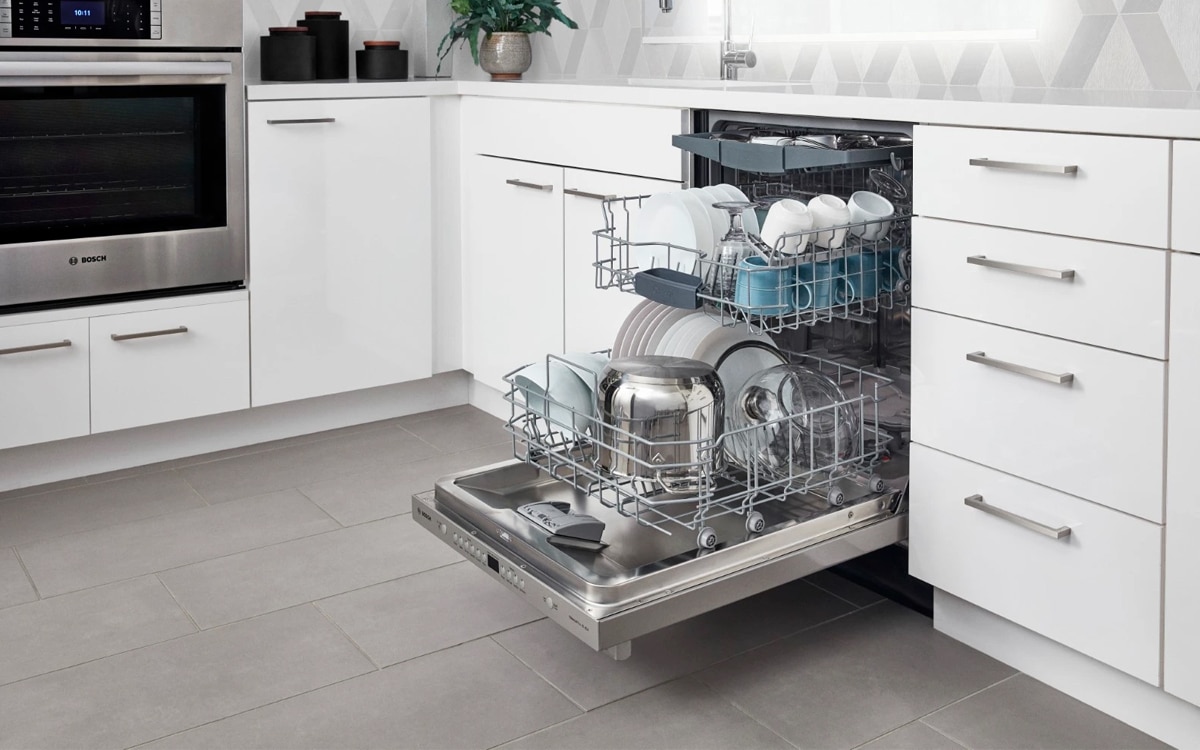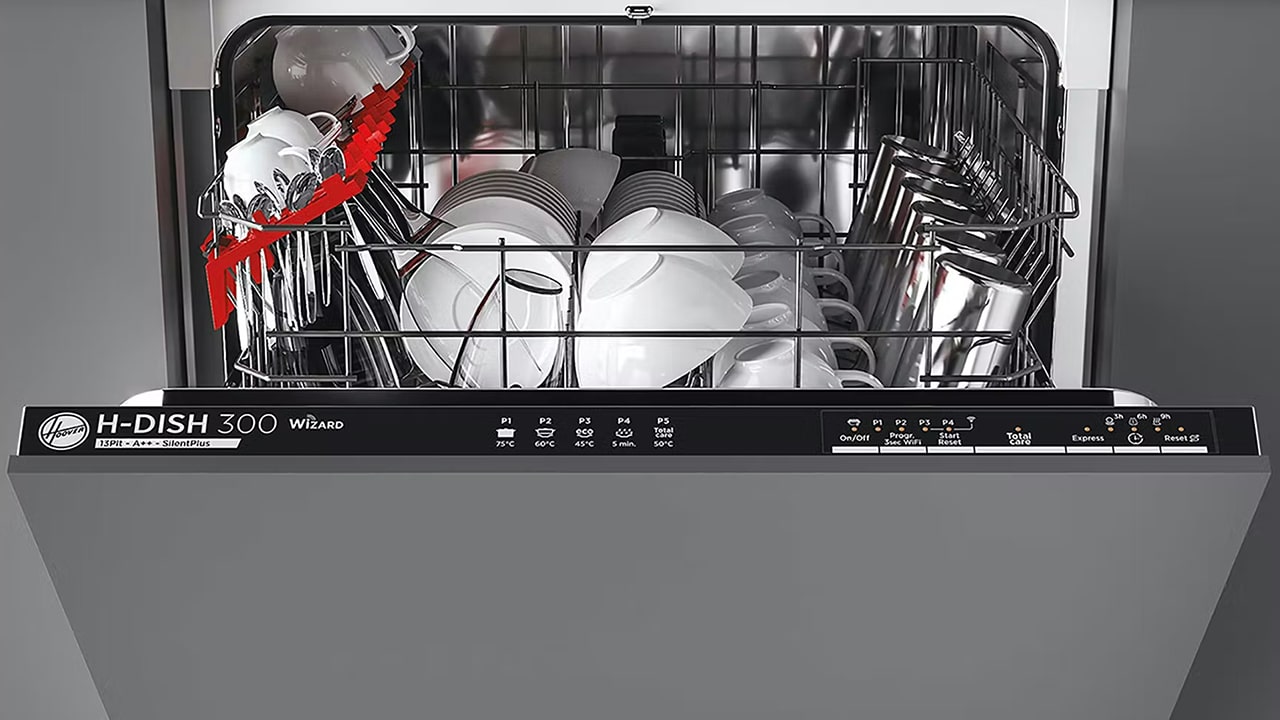Dishwashers are incredibly useful and can become an essential part of any working kitchen. But they can’t last forever! Even the hardiest of dishwashers have a limited lifespan, and will reach the point at which they need to be replaced!
However, it can be a little tough to tell just how much more mileage a dishwasher might have left in it. A great way to tell how much more life your dishwasher has left in it is to see how old it is. But how long should a dishwasher normally last? At what age is a dishwasher considered old? And how do you know when it’s on its last legs?
We’ve put together this guide to help you decide whether your dishwasher might be due a replacement!
How Long Should A Dishwasher Last?
On average, most dishwashers tend to last up to ten years. However, this does not mean that as soon as your dishwasher reaches ten years, it will suddenly stop working. In some cases, faults may present themselves well before ten years have passed. And in other cases, a dishwasher can easily live beyond the expected ten years.
Dishwashers can easily last more than ten years. However, there are cases in which dishwashers can far exceed the expected ten-year lifespan! Don’t give up on your dishwasher just yet!
The ten-year average can, however, be used as a great indicator of how much life a dishwasher might still have in it! Though a dishwasher could live beyond the expected ten years, at this age it is far more susceptible to developing errors.
At What Point Is A Dishwasher Considered Old?
Generally, once a dishwasher has passed the five-year mark, it can be considered old. At this point in its lifespan, errors and faults may be more likely to pop up. However, if your dishwasher is still under ten years old, don’t give up on it yet. If it’s still in full working order, by all means, continue using it as normal!
Is It Worth Repairing A Dishwasher?
The answer to this can depend on both the age of the unit and the extent of the damage. If a dishwasher were to be damaged within the first five years, then paying for a repair may be the most cost-effective option. At this age, faults are far less likely to occur, so repairing the unit can bring it a new lease of life.
If the dishwasher is more than five years old or is closer to ten years old, then it may be more cost-effective to pay for a total replacement. As dishwashers age, they are more likely to develop faults that are tougher to solve. You might spend hundreds of pounds on repairs for an old dishwasher, only for a new error to take its place in no time.
Dishwasher repairs can be very costly. If your dishwasher is already more than ten years old, you may be able to save more money by simply replacing it with a new model.
Of course, both of these instances can depend on the extent of the damage. If the damage is minor, and replacement parts are easy to source, then you may not have to spend much for repairs, even with older dishwashers.

How Do You Know When Your Dishwasher Is Dying?
Of course, knowing the age of your dishwasher is not enough. You might have a dishwasher older than ten years that still works perfectly fine. It would certainly be a waste to throw that away! As well as the age of your dishwasher, you should also be sure to look out for specific signs that a dishwasher is on its last legs. Let’s take a look at some of these signs.
Drainage Issues
At the end of a normal dishwasher cycle, water is flushed out from the system via drainage. Over the years, the efficiency of a dishwasher to drain out water can slowly deplete. Towards the end of its life, a dishwasher may have a lot of trouble draining even the smallest amount of water.
Your Dishes Are Still Dirty!
Obviously, a good dishwasher should result in sparkling clean dishes every time you run a cycle. If you notice that dishes are being pulled out with bits of food still stuck to them, then it could be a sign that your dishwasher is on the blink! Just make sure you’re not overstuffing the dishwasher. Overstuffing a dishwasher can make it difficult for water to travel and wash all of your dishes!
It’s Rusty
Dishwashers are specifically designed to resist the development of rust. However, as a dishwasher gets older, it also becomes much more susceptible to rust developing within its interior. If any part of your dishwasher is rusty, it can be a great sign that the unit is simply too old. After all, a rusty dishwasher just won’t be able to clean your dishes very well!
The Door Won’t Shut
Arguably one of the most important parts of a dishwasher is the door. Without a good and solid door, water from the dishwasher could easily leak out all over your floors. Many dishwashers will not operate unless the door is fully latched. If you are having trouble latching the door of your dishwasher shut, then you are at risk of walking into a massive puddle pooling on your kitchen floor!
Frequently Asked Questions
How Long Should A Dishwasher Last?
Dishwashers usually last around ten years on average. However, if a dishwasher is well maintained and cared for, then it could easily last more than ten years. If your dishwasher is over ten years old and is still in full working order, there may be more life left in it!
Is 7 Years Old For A Dishwasher?
At around 7 years old, a dishwasher would be entering the final years of its life. Thus at age 7, it would be possible to consider a dishwasher to be old. However, if a 7-year-old dishwasher is still working, there’s every chance that it could live for more than 10 years!
Should I Repair A 9-Year-Old Dishwasher?
At 9 years of age, a dishwasher would be considered to be very old. At 9 years, faults are more likely to develop and issues are more frequently encountered. If a 9-year-old dishwasher is only slightly damaged, then it may be worth repairing it. However, significant repairs may cost a lot more than even a brand-new dishwasher!





